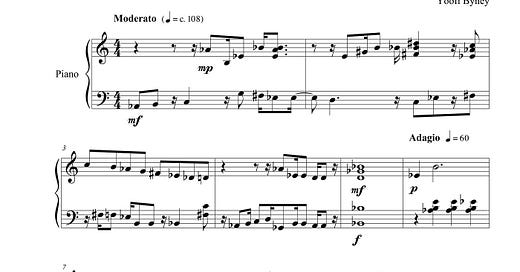I’m a musician. I write songs, produce music, and play guitar. Music is a language just like English. It has grammar, which I’ll call music theory.
Songs like stories have a beginning, middle, and a resolution/climax. A song is a story told with musical notes and harmonies. A melodic idea is even called a phrase.
Are you beginning to see what I’m driving at? My work as a musician has taught me a few things about writing. I’d like to share that with you.
Practice, practice, practice
I realised that the only way I could become a better guitarist is to practice doing stuff I can’t do on my guitar.
If I can’t run through some scales, I set the metronome to the slowest tempo and practice slowly until I can play with very few mistakes. Then I increase the tempo and repeat that same process.
The more I practice, the better I get. Same with songwriting. The more songs I write, the better my songwriting skills get.
So I do the same thing with writing. I practice summarising, writing dialogues, poems, articles, flash fiction, short stories, essays, etc.
And although there are countless AI tools for editing, I practice that too. I even practice writing catchy openings and thought-provoking conclusions.
Music has taught me that if I am going to get better at anything, including writing, then practicing is one of the things I need to make time for.
Complex ≠ quality
Music and songwriting have taught me that the fact that a song is complex, difficult to play, lengthy, and has many sections means it’s better written. Because of this, when I write a song, I try to make even the complex stuff sound very simple.
Sometimes I have to ditch a particular harmony because it’s too dissonant for the average ear. I see that same technique used by popular songwriters and musicians.
So I realised that for my writing to appeal to a larger readership, I need to avoid the use of jargon, “big” words, country-specific phrases, etc.
I need to write very simple English and keep a conversational tone. I believe that is one way I can connect with my readers. I realised writing shouldn’t be Morse.
Personal touch is everything
Music has taught me that, when it comes to playing a musical instrument, your personal touch is everything. I can tell whether it’s John Coltrane, Charlie Parker, or Paul Desmond who’s playing on a record without looking at the credits.
I mean, give Earl Klugh an electric guitar and Wes Montgomery an acoustic, and most people will still be able to tell them apart! That’s because their personal expressions are very evident in their playing.
I realise that for my writing to appeal to most readers, it needs to be in my own voice. It needs that personal touch. Without it, the writing is soulless.
Listening is essential
Music is always for the listener but the first listener is the player — Wynton Marsalis
I now know that by not listening to the songs other musicians have written, I stunt my own musicianship. It’s simple as that.
So as a writer, I read other writers’ work even more often than I write. I always ask myself why I liked this writing or why I didn’t. If others liked it as much as I did, then I take a lesson from that.
Just like listening to other musicians’ songs teaches me something new about music and songwriting, reading other writers’ work also teaches me about writing and ways to improve on the craft.
Share your work: find your audience
I have realised that if I share the songs that I’ve written, not only do I get feedback, but I’m equally blessed to find an audience for my creation.
So as a writer, I have always been big on sharing. I edit my work close to as perfect as it can be and put it out there. I have thick skin, so I’m always open to any form of criticism and to rejection.
Feedback comes in the form of actual words, comments, claps, or the followers you get after you share the work. What music taught me is to take feedback properly and keep at it. You only lose if you quit.
So I’ll never stop writing and sharing what I’ve written.
Final words
If you’ve read some of my stories, you’ll realise my outstanding enthusiasm for the platform. I feel platforms like Medium and Substack have offered me the opportunity to put all these things that music taught me into action.
I see these platform as necessary for my writing journey, and I hope what I share here is as helpful to yours as well. Now, if you don’t mind sharing, “Is there anything your day-work or profession has taught you about writing?”
Or, are you a full-time writer?









